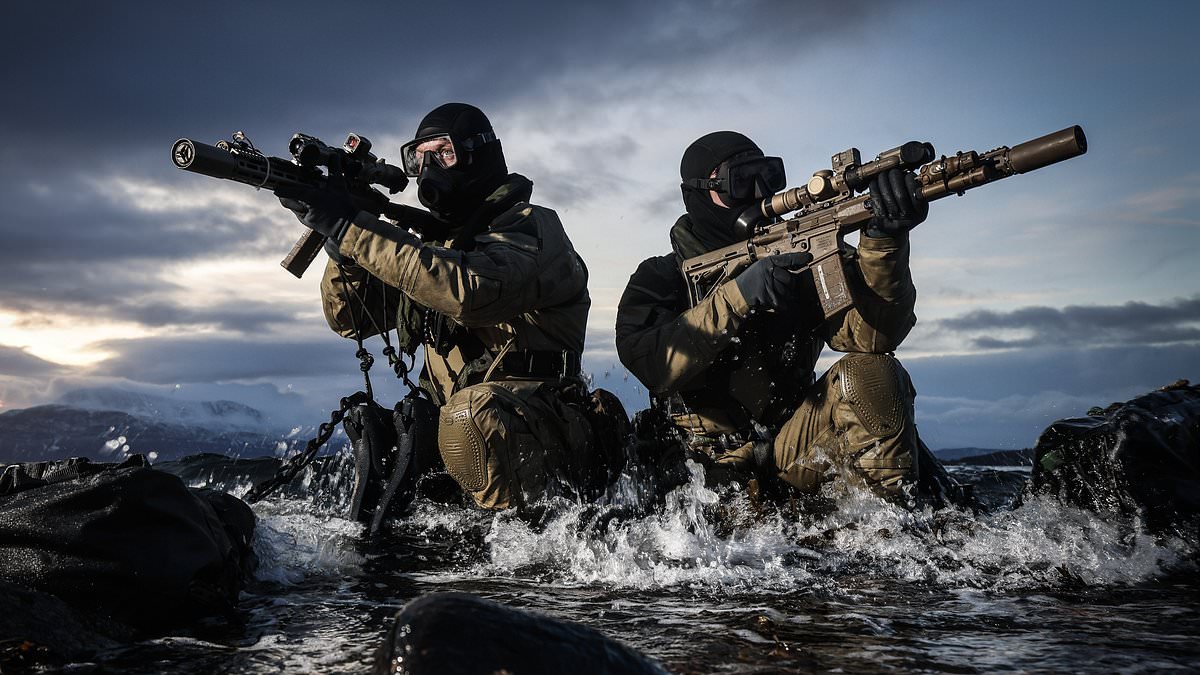The gruelling training endured by Royal Marines recruits could be watered down to meet diversity targets thanks to ‘political pressure’ to admit more women, whistleblowers have revealed.
There are growing fears that elements of the Royal Navy’s elite commando training, which keeps standards set in the Second World War, are being made easier to let women pass, with junior instructors expressing their disapproval on social media.
Training at the commando base at Lympstone near Exeter is held to be the toughest of any Nato infantry force.
Nine women have passed a shortened ten-week ‘all-arms commando test’, but none has passed the full, 32-week Royal Marines course.
So far, seven female applicants have attempted it, notably former England rower Philippa Birch, who joined in 2019 but left after she was injured.
Royal Navy chiefs are understood to have come under pressure from civil servants to boost their diversity figures.
Senior officers have privately expressed their concerns. One who recently served at Lympstone said: ‘The tests needed to pass the course and be granted the privilege to wear the green beret have not been diluted.
‘But there is a lot of pressure to get a female to pass the course, and the Navy see it as some sort of crusade. Our view is that there are lots of very good females out there and at some point one will pass.’
Women can serve in all parts of the Armed Forces, and only the Royal Marines and the SAS do not have a female ‘badged’ soldier.
Last month, Marine John Carr was held by Ministry of Defence police for warning in an open letter that ‘training was being diluted to meet diversity targets’, claiming it risked costing the life of a male marine.
He claimed standards were being lowered for women, and some were being ‘artificially pushed through training’ and receiving ‘unearned paper passes’.
The Ministry of Defence said: ‘Selection standards have not changed, and the same high standards apply to every recruit.’
Referring to Marine Carr, it added: ‘This issue is subject to an ongoing investigation, so we are unable to comment further.’
